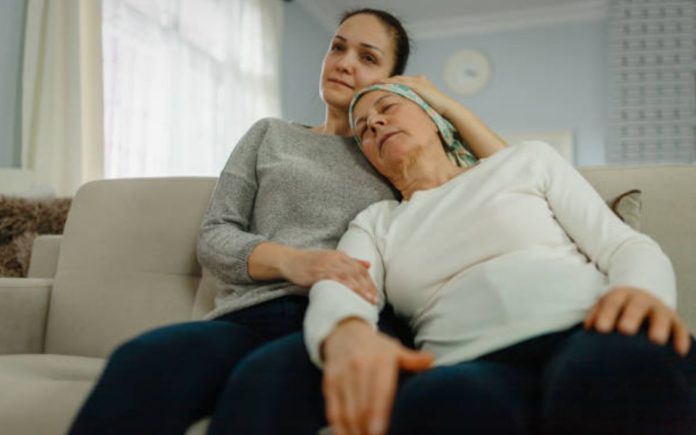Nearly 17 million people in the U.S. are living with cancer, many of whom are currently being treated for their disease, and forced to make some difficult calculations weighing their risk of cancer against their risk of getting COVID-19.
Millions of Americans may be booking an additional appointment with their doctor this year, thanks to updated guidelines from the American Cancer Society (ACS).
- Scientists in Fear of This New Predator From Red Sea Eating Native Species in Mediterranean
- Does This Mean We Stopped Being Animal and Started Being Human Due to ‘Copy Paste’ Errors?
- The One Lifestyle Choice That Could Reduce Your Heart Disease Risk By More Than 22%
- Aging: This Is What Happens Inside Your Body Right After Exercise
- Immune-Boosting Drink that Mimics Fasting to Reduce Fat – Scientists ‘Were Surprised’ By New Findings
One of the most common cancers in the US is colorectal cancer – a type of bowel cancer and now the ACS is recommending that adults at average risk of colorectal cancer should begin regular screenings at age 45, especially people with a strong family history of colorectal cancers.
People in their 60s and above are more at risk. Colorectal cancer describes cancer cells in either the colon or the rectum. Colon cancer is part of the large bowel whereas the rectum is the passageway that connects the colon to the anus.
Symptoms of colon cancer include:
- Blood in your poo
- Bleeding from the back passage
- Unexplained diarrhoea or constipation that lasts for three weeks or more
- Unexplained weight loss
- Tummy pain
- Back passage pain
- Feeling like you’ve not emptied your bowels properly after you poo
- Unexplained tiredness, dizziness or breathlessness
- Anaemia
If the cancerous tumour causes a blockage in the bowel, you may feel:
- Constipated
- Bloated
- Tummy pain
- Sick, and you might vomit
According to the American Cancer Society, “narrowing of the stools that last for more than a few days” could be a warning sign of bowel cancer.
If you have any of the above symptoms it’s advisable to speak to your GP.
To make the most of your limited time period with a doctor, the agency has suggested doing the following beforehand:
- Write down your symptoms including when they started, when they happen and how often you have them.
- Write down anything that makes them worse or better.
- Tell your Doctor if you are worried about cancer.
- Tell them if you have any family history of cancer.
- Take a friend or relative along for support – they could also ask questions and take notes to help you remember what the Doctor says.
- Ask the Doctor to explain anything you don’t understand.
- Ask the Doctor to write things down for you if you think it might help.
Various tests will be carried out to investigate the cause further.
If cancer is diagnosed, treatment will depend on whether it’s colon or rectal cancer, and the stage of the cancer.
The main treatment options for colon cancer are surgery and chemotherapy.
Surgery
In the early stages of colon cancer, the surgeon can remove the cancer from the bowel along a border of healthy tissue; this is known as a local resection.
Alternatively, the surgeon might remove all or part of the colon that contains the tumours; this is known as a colectomy.
Once the tumour is removed, the surgeon then joins the ends of the bowel back together.
In some cases, the ends of the bowel may need time to heal via a stoma.
Chemotherapy
Chemotherapy uses anti-cancer (cytotoxic) drugs to destroy cancer cells.
These may include:
- Fluorouracil
- Capecitabine
- Oxaliplatin
A person is likely to have chemotherapy if they have stage two or stage three bowel cancer.
The purpose of chemotherapy is to reduce the chance of the cancer returning.
Chemotherapy may also be offered if the cancer has spread to other parts of the body.
People undergoing this treatment will have chemotherapy every two to three weeks, which is known as a cycle.
- Scientists in Fear of This New Predator From Red Sea Eating Native Species in Mediterranean
- Does This Mean We Stopped Being Animal and Started Being Human Due to ‘Copy Paste’ Errors?
- The One Lifestyle Choice That Could Reduce Your Heart Disease Risk By More Than 22%
- Aging: This Is What Happens Inside Your Body Right After Exercise
- Immune-Boosting Drink that Mimics Fasting to Reduce Fat – Scientists ‘Were Surprised’ By New Findings
Cancer patients may have up to eight cycles of chemotherapy, averaging around six months.
